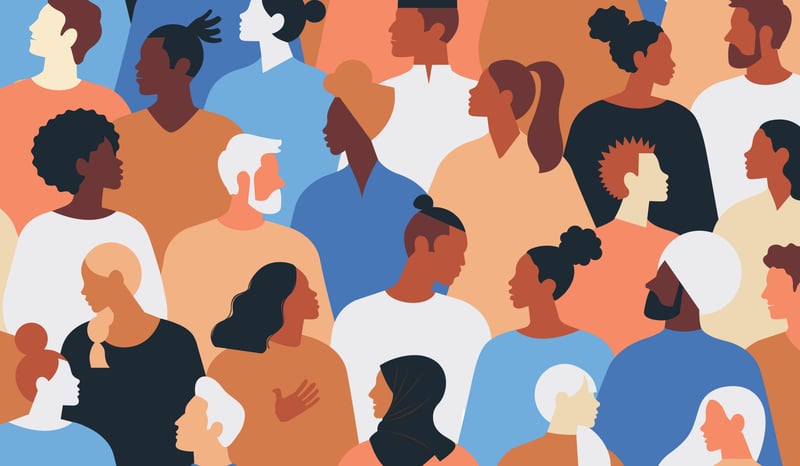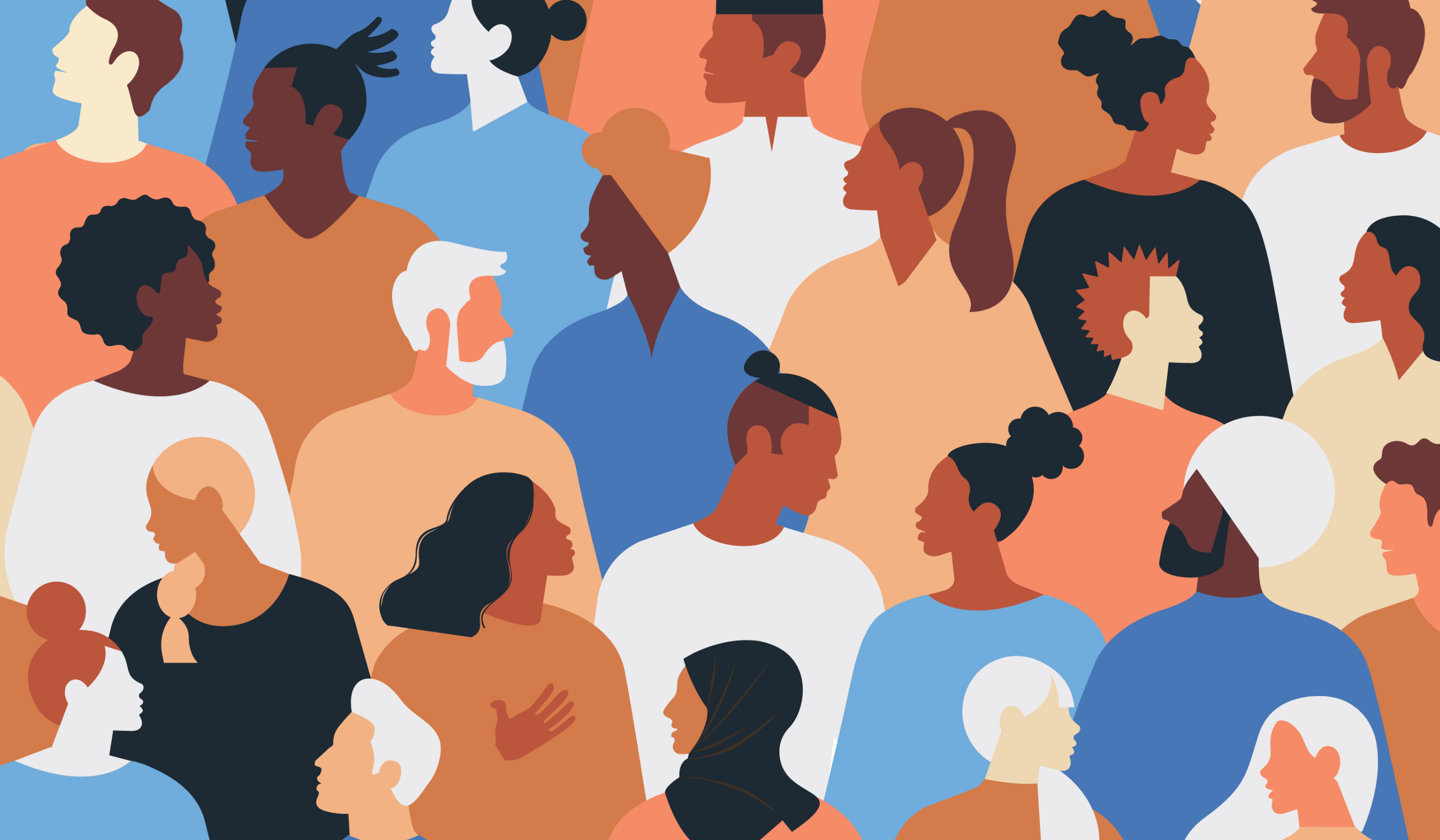
The amount of personal growth that takes place within one’s college years is no accident. For years, educational and developmental psychologists have studied this phenomenon, referred to as Student Development Theory.
What is Student Development Theory?
Student Development Theory refers to several schools of thought that explain how college students develop physically, biologically, physiologically, psychologically, socially and environmentally. The goal of Student Development Theory is to better equip students to become well-rounded individuals who possess the skills to succeed as an adult — skills which cannot be developed through academics alone. This requires the right environment for students to succeed academically and grow as individuals. According to Student Development Theory:
- Learning involves the “whole” student, including one’s physical, mental, emotional and spiritual selves.
- Each person is unique.
- Behavior is determined by the person and their environment.
- Optimal student development is achieved through a balance of challenge and support.
With Suitable’s digital solutions, academic advisors can gain a complete picture of each student and see their whole selves. This can aid them in advising students how to use their campus’ resources to best complement the traditional classroom education they receive.
How Do Higher Education Professionals Use Student Development Theory to Help Students?
Student Development Theory provides qualitative and quantitative data to help higher education professionals, including faculty, student affairs professionals and academic advisors, better understand students’ developmental levels and how co-curricular activities can help students best meet their goals. Higher education professionals can also use Student Development Theory to improve student engagement by designing new programs that benefit student self-awareness, knowledge and skills. Some additional uses for the various higher education professionals are shown in the table below:
|
For Faculty |
For Student Affairs Professionals and Academic Advisors |
|
Offering an appropriate amount of challenge and support |
Gaining insights regarding the appropriate amount of challenge and support |
|
Aligning curriculum, instruction and assessment to students’ developmental stages |
Developing co-curricular programs that support students’ developmental stages |
|
Developing inclusive learning environments for diverse learners |
Creating inclusive campus environments for diverse students |
|
Setting appropriate course expectations |
Supporting students’ identity development |
Students who are more engaged both inside and outside the classroom are more likely to succeed and complete their degree as they have the skills and support needed to persevere. Thus, focusing on Student Development Theory should lead to increased student persistence and retention. Likewise, Suitable’s mobile products and solutions contribute to the development of students’ whole selves through the collection of key data that can be used to determine students who have met specific competencies.
By developing digital co-curricular roadmaps to measure students’ campus engagement, higher education institutions can better understand students’ goals and challenges. These roadmaps serve as individualized plans for students so that they can see their progress. Through this data collection, advisors know when to offer their help to get a student back on track. When looking at the data on a broader level, higher education leaders can better understand the factors that determine whether a student returns for another semester.
Student Development Theory: The Four Main Schools of Thought
Student Development Theory can be broken down into four primary schools of thought: psychosocial, cognitive and moral, typology and person-environment. Within each of the schools of thought, there are multiple theories – read the full list and their applications in this guide.
Psychosocial Development
Psychosocial development concerns students’ personal and interpersonal lives. It focuses on theories from Arthur Chickering, Erik Erikson and Abraham Maslow.
Chickering’s Seven Vectors
Arthur Chickering’s Seven Vectors considers how college students develop psychosocially and considers college as a significant step in developing one’s identity. According to this theory, students in their college years experience seven developmental stages that may overlap with one another:
- Developing competence
- Managing emotions
- Moving through autonomy toward interdependence
- Developing mature interpersonal relationships
- Establishing identity
- Developing purpose
- Developing integrity
While individuals may work through more than one vector, or stage, at a time, their focus is on one at a time. Chickering’s stages are not hierarchical, meaning that individuals experience the stages at different times during these years. It is important for student affairs professionals to consider these stages when developing programs for students. Suitable’s partner institutions can apply their knowledge of Chickering’s Seven Vectors to develop effective student programming that addresses these developmental stages.
When college students are highly engaged on campus, they come to better understand their purpose and their identity. By tracking student engagement through Suitable’s mobile solutions, the data can show where students are in their development and may alert academic advisors of potential risk factors.
Cognitive and Moral Development
Cognitive and moral development theories concern how students develop intellectually and how they understand the world around them — the way people think, not what they think. Cognitive and moral development theories include those from William Perry, Lawrence Kohlberg, Carol Gilligan.
Perry's Theory of Intellectual and Ethical Development
William Perry’s theory concerns how people view their experiences. It helps explain how college students organize and make sense of information. Perry’s theory includes several sequential developmental stages. The relativistic stage, in which students commit to an ideology and use it to inform their worldview, is said to be most common among college students. Perry’s Model is based on four levels:
- Dualism: Students receive knowledge but do not question it.
- Multiplicity: Students recognize there can be more than one answer to a problem.
- Relativism: Students evaluate viewpoints based on sources and evidence.
- Commitment within relativism: Students understand that knowledge can come from many sources, including personal experience and reflection, and that learning is ongoing.
The fourth level, commitment within relativism, can be achieved with the help of Suitable. Students have the opportunity to reflect on their personal experiences, such as an internship or study abroad experience, that can be added to their e-portfolio. Building up an e-portfolio is a way for employers to see how students are developing throughout their education.
Typology Development
Typology theories focus on how students view and relate to the world and where they draw their energy from. Typology theories include Holland's Theory of Vocational Choice, Astin’s Theory of Involvement, Tinto’s Theory of Student Development, Pascarella’s General Model for Assessing Change and the Myers-Briggs Model.
Holland’s Theory of Vocational Choice
According to John Holland, students’ career choices are based largely on their personalities. During their college years, students’ worldviews shift based on their campus experiences and exposure to new interests, which can impact their potential career choices.
By tracking student engagement data through Suitable, academic advisors and campus career services centers can better understand students’ individual interests and use that information to help them find a major and/or profession that best fits their personalities, interests and aptitudes.
Person-Environment Development
Person-environment theories, largely based on the philosophies of John Dewey, describe the relationship between students and their environments.
By tracking data through Suitable’s digital solutions and applying person-environment development theories, student affairs professionals can better understand the degree to which students are satisfied with the campus environment, thereby providing valuable information for retention efforts.
John Dewey
Educational philosopher John Dewey’s philosophies focus on education’s role in society. Dewey’s key concepts include these ideas:
- Students are involved in their own learning.
- Students’ behavior is guided by their social environments.
- Students become aware how their subconscious habits influence them.
- Student development focuses on growth from immaturity to maturity.
Suitable can help student affairs professionals gain an understanding of how campus life, resources and programming affect student learning and behavior. Through both educational and social campus-wide events, higher education professionals can properly guide student development.
How Student Development Theory and Suitable Work Together
The four primary schools of thought in Student Development Theory can be implemented through Suitable. Suitable’s solutions, such as co-curricular roadmaps, provide higher education professionals with data that can help improve student engagement, thus improving student development.
Looking at the data on a macro level will benefit higher education leaders by helping them better understand the factors and trends that affect student learning. Whereas, analyzing data more closely can illuminate insights at the student level and help shape advising strategies.
Want more info on how Student Development Theory and Suitable work together? Download our full guide on Student Development Theory here.


